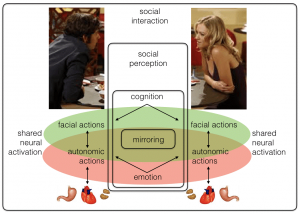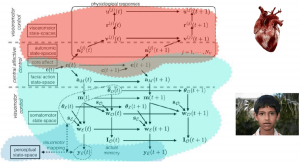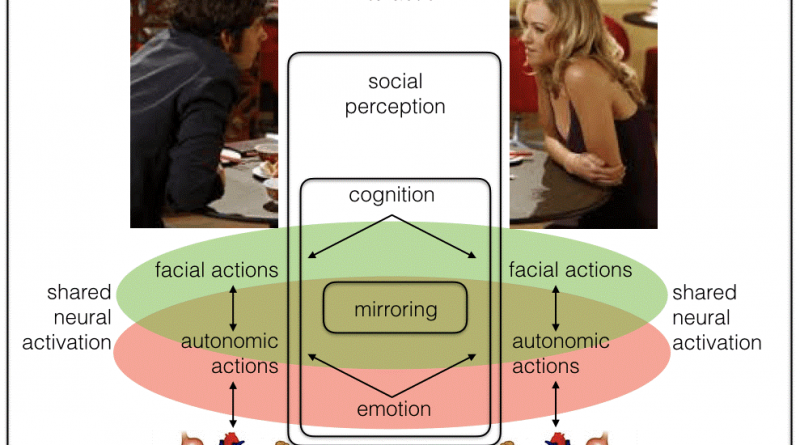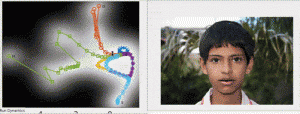Affective Computing
This work is a joint collaboration between the LIFAT and the PhuseLab, University of Milan.
Contact : Donatello Conte
This collaboration is concerned with what is called affective computing in English, or affective computing. Emotion is a key element of non-verbal behaviour. We have considered a simulationist approach to emotion analysis as part of a face-to-face interaction between an observer and someone who expresses emotion. The rationale for this approach lies in the extensive evidence from emotional neuroscience that shows that when we observe emotional facial expressions, we react with congruent facial mimicry.
At the heart of this perspective is the simulation of the emotion perceived by the observer.
We have proposed a new probabilistic framework based on a representation of a latent continuous space of emotions, which can be exploited both for the estimation and the realization of emotional states (generative approach) in a multimodal space (visible facial expressions and physiological signals).




